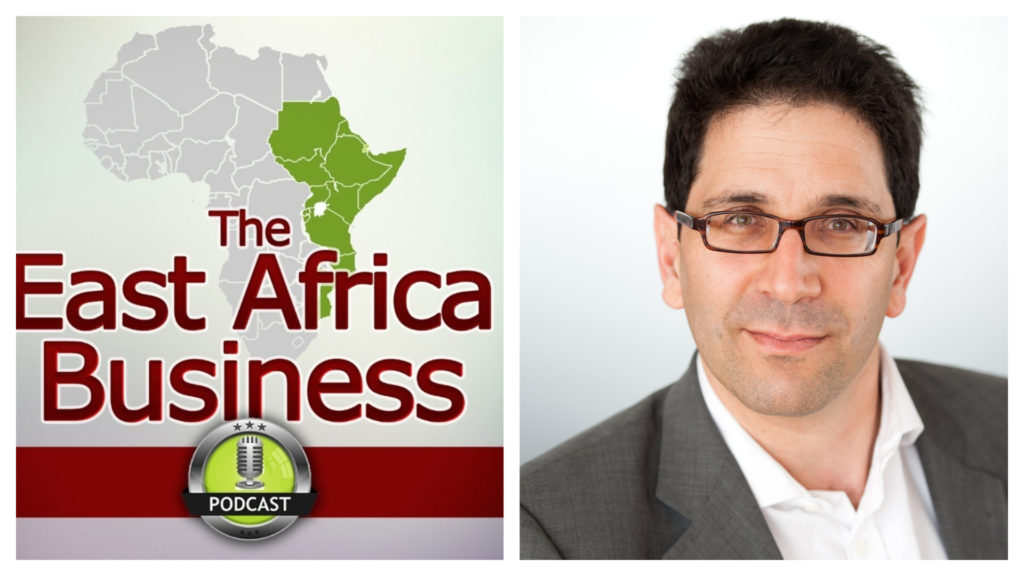Overview
In this episode I speak with Jonathan Rosenthal, the Africa Editor of The Economist.
Our paths crossed when I was back in London for a few weeks, and so we took the opportunity to meet, and speak about some of the continent wide trends which he’s seeing, from the vantage point of running the Africa desk for the magazine.
Most episodes you’ll have listened to on the show will delve into a particular aspect of running a company in East Africa. Teasing out the specifics of why a certain business decision has been made or not, or trends that are present within a particular industry niche.
This episode is slightly different.
Jonathan and I take a much broader look at Africa’s development through the lens of, say, government debt ratios and currency reserves.
Whilst this might seem a bit lofty, I’d encourage you to stick with it.
In listening to the other episodes you will (I hope) get an understanding of the micro level of business in the region.
To get a fuller picture requires, I believe, to understand the larger macro factors at play in the story of development.
One such example of this is the government policy of raising debt from local banks. Because the interest rates they offer are so high, it distorts the incentives for banks to lend to local businesses. As such, this macro level effect of “crowding out” the private sector trickles down to the suppression
of local businesses looking for capital to grow.
There are also references to the macro trends that can come from the innovation of rooftop solar systems. If you’d like to learn more on this, be sure to check out the Distributed Economy episode with Conrad Whitaker from Azuri Technologies.
The interview took place at The Economist HQ in London which, helpfully, has a recording studio of its own. If you’re interested in hearing more from The Economist, be sure to check out their regular podcasts which feature updates, insights and in-depth interviews that expand on their stories.
Sign up below to hear whenever there are new stories and episodes released on the podcast
Former banking editor of The Economist
The editor was looking at more of a business/ finance angle rather than just people looking at dangerous war zones.
Africa is skewed by South Africa and Nigeria
The simple dissection of those two main economies with the rest of the continent is a way to identify growth patterns. The price of oil is a big determinant of the West African economy.
Debt in East Africa
There is an interesting relationship between investment and taking on debt. If it goes towards productive use: great, though some of the growth seems to be from unsustainable government spending.
Distressful levels of debt?
Public Debt: GDP. How much have government entities borrowed as a percentage of what you earn. Africa has what seem to be relatively modest levels (50%) compared to an international level (80-100%).
Interest rates are higher locally
This often means that the government is paying back a higher percentage of the (low) tax revenues that they generate which becomes a significant burden.
Problem: governments raise local currency
This comes from local banks. The T-Bill rate that I can get from the government is really good, and so why should I take on the risk of lending to local governments?
Result: local banks channels savings to the government which means that local businesses aren’t able to get
Suppression of domestic business growth
This is the result of incentives at play, and relatively shallow capital markets, which means that new companies have difficulty to grow.
Financial repression
This is a way out of the cycle: capping the amount of government debt local institutions can hold to force them to get their money out into the economy.
Intra-Africa trade is low
Difficult to measure, but the value of trade between nations is internationally very low. There are still non-tariff barriers.
Slow ports drives up costs
The inefficiency of containers sitting idle, the higher the cost, the less internationally competitive it becomes.
Africa missed out on textiles labour
There’s a path dependency in that a number of, say, textiles factories have set up in China, and so it’s less likely to move elsewhere. This is now moving.
The race against the machine
Can Africa industrialise before robots outstrip unskilled labour? Some tasks are complex for machines to do still, and still expensive, and so the economics are still compelling to hire local labour.
African Central Banks have done very well
By and large there has been a professionalisation of financial discipline which has translated through to low and stable inflation.
Ideological opposition
To privatising aspects of institutions. Some believe in the China model of it being state led rather than profiteering private companies. The Economist is, as a general stance, in favour of the capitalist approach.
Lessons & Insights
Best bang for buck? Reduce the influence of a predatory state. i.e. instigate competitive, privately-owned port operators
Insight: “Africa missed the escalator of the original boom in textiles”
Opportunity: “Countries need to build stuff to grow (rather than relying on a service economy)”
Links etc.
Jonathan on Twitter: https://twitter.com/rosenthal_jon
The Economist Radio: http://radio.economist.com/
